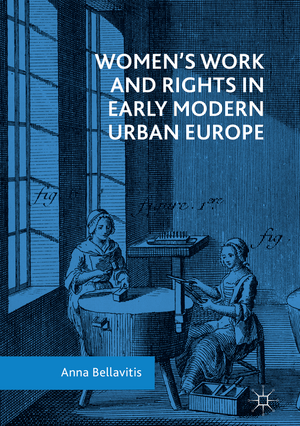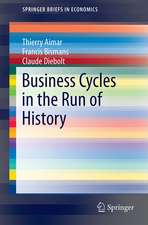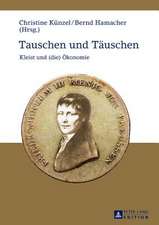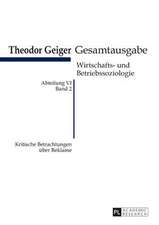Women’s Work and Rights in Early Modern Urban Europe
Autor Anna Bellavitisen Limba Engleză Hardback – 9 noi 2018
| Toate formatele și edițiile | Preț | Express |
|---|---|---|
| Paperback (1) | 471.98 lei 38-45 zile | |
| Springer International Publishing – 13 dec 2018 | 471.98 lei 38-45 zile | |
| Hardback (1) | 699.28 lei 6-8 săpt. | |
| Springer International Publishing – 9 noi 2018 | 699.28 lei 6-8 săpt. |
Preț: 699.28 lei
Preț vechi: 822.68 lei
-15% Nou
Puncte Express: 1049
Preț estimativ în valută:
133.80€ • 140.21$ • 110.62£
133.80€ • 140.21$ • 110.62£
Carte tipărită la comandă
Livrare economică 11-25 aprilie
Preluare comenzi: 021 569.72.76
Specificații
ISBN-13: 9783319965406
ISBN-10: 3319965409
Pagini: 275
Ilustrații: XIV, 266 p.
Dimensiuni: 148 x 210 x 18 mm
Greutate: 0.49 kg
Ediția:1st ed. 2018
Editura: Springer International Publishing
Colecția Palgrave Macmillan
Locul publicării:Cham, Switzerland
ISBN-10: 3319965409
Pagini: 275
Ilustrații: XIV, 266 p.
Dimensiuni: 148 x 210 x 18 mm
Greutate: 0.49 kg
Ediția:1st ed. 2018
Editura: Springer International Publishing
Colecția Palgrave Macmillan
Locul publicării:Cham, Switzerland
Cuprins
Part I: Women, Work, Rights and the City.- Chapter 1: Women have Always Worked.- Chapter 2: The Gender of Work.- Chapter 3: Working Daughters, Wives, Mothers, Sisters, Widows.- Chapter 4: The “Decline Thesis” and the Guilds: An “Accordion Movement”?.- Chapter 5: From Globalisation to Industrialisation.- Chapter 6: Agency and Capabilities: North vs South?.- Chapter 7: The Right to Learn, the Right to Teach: Intellectual and Artistic Work as a Profession.- Part II: Women’s Jobs.- Chapter 8: Servants and Slaves.- Chapter 9: Caring and Feeding.- Chapter 10: Midwives.- Chapter 11: Bodies as Resources.- Part III: Workshops and Markets.- Chapter 12: Learning at Home and on the Shop Floor.- Chapter 13: Women, Families and Guilds: the French Exception.- Chapter 14: Silk and Skill.- Chapter 15: Printed Tracks.- Chapter 16: In the Marketplace.- Chapter 17: International Traders.- Part IV: Conclusions.- Chapter 18: Conclusions and Suggestions for Further Research.
Notă biografică
Anna Bellavitis is Professor of Early Modern History at Rouen University in Normandy, France and Senior Member of the University Institute of France. Her research concentrates on family and gender history, urban history and citizenship and labour history.
Textul de pe ultima copertă
In the last decades, women’s role in the workforce has dramatically changed, though gender inequality persists and for women, gender identity still prevails over work identity. It is important not to forget or diminish the historical role of women in the labour market though and this book proposes a critical overview of the most recent historical research on women’s roles in economic urban activities. Covering a wide area of early modern Europe, from Portugal to Poland and from Scandinavia to the Mediterranean, Bellavitis presents an overview of the economic rights of women – property, inheritance, management of their wealth, access to the guilds, access to education – and assesses the evolution of female work in different urban contexts.
Anna Bellavitis is Professor of Early Modern History at Rouen University in Normandy, France and Senior Member of the University Institute of France. Her research concentrates on family and gender history, urban history and citizenship and labour history.
Anna Bellavitis is Professor of Early Modern History at Rouen University in Normandy, France and Senior Member of the University Institute of France. Her research concentrates on family and gender history, urban history and citizenship and labour history.
Caracteristici
Combines a macro-analytical approach (discussion of historical thesis and models) with a micro-narrative approach (case-studies and life-stories) Highlights the need for further research on women’s working opportunities Investigates 'female' occupations from domestic service to prostitution















